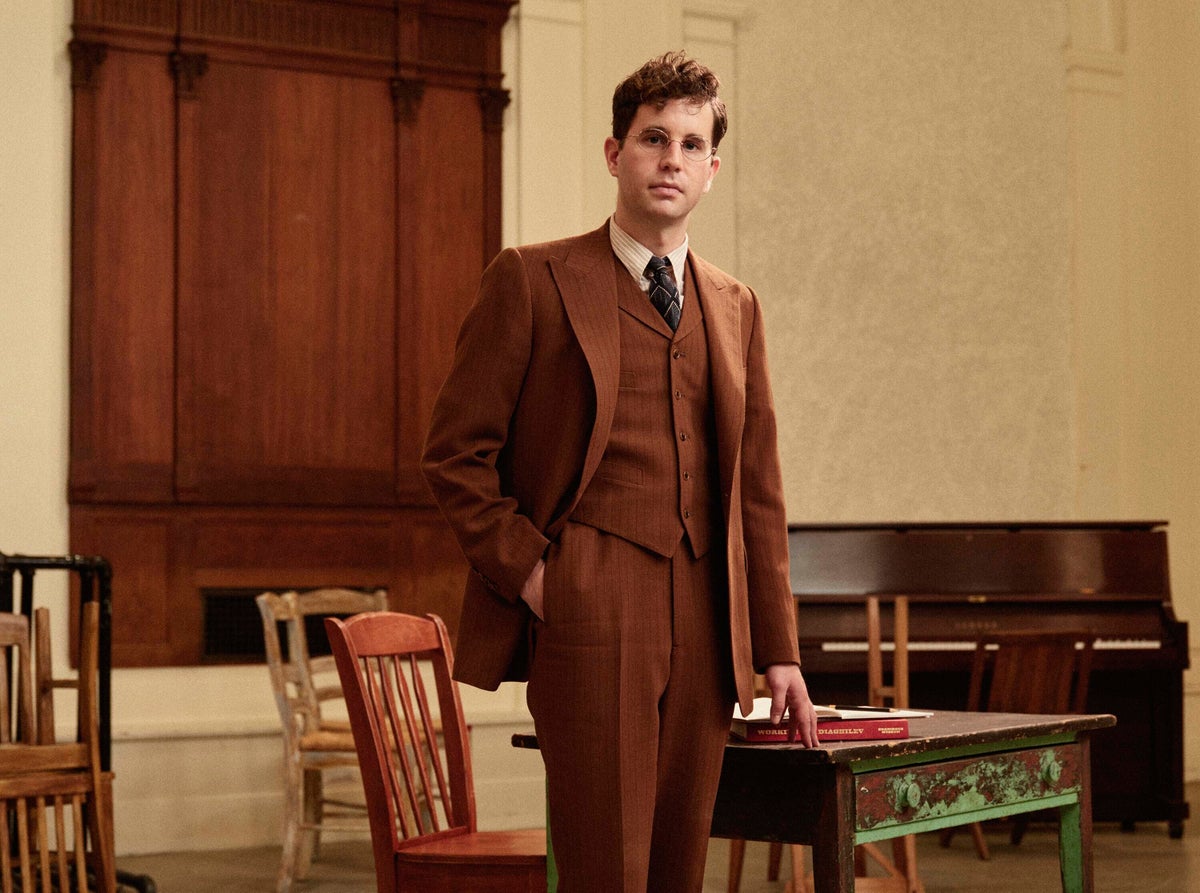
There's so much darkness awaiting Ben Platt in his new Broadway role these days that he's countered with a dash of brightness.
“I painted my dressing room pink so that it’s a very bright and warm and joyful place to be, so that I can leave what happens on the stage on the stage,” he says.
Platt deserves all the joy he can grab while playing the doomed lead anti-hero in the musical “Parade,” adapted from a true story that took place in Atlanta just before World War I.
He plays Leo Frank, a Brooklyn-born Jewish factory manager falsely accused of murdering a young girl. He is tried and convicted, has his death sentence commuted but then is lynched by a Southern mob who dislikes his religion and Northern values.
“It’s really a human story about how people — because of the traumas of their past — can’t escape the prejudice of their present,” says the show's director, Michael Arden.
The musical is being revived on Broadway just as the nation endures another wave of anti-Semitism, which has brought darkness even to the theater's front door. The show's first preview was marred by a few neo-Nazi protesters outside.
That has only proven to Platt and the rest of the “Parade” team that bringing this musical back in front of an audience is the right thing to do in the face of bigotry and bullying.
“I think both in terms of specifically anti-Semitism and in terms of just the horrors of social media and online mob mentality, it feels all too contemporary,” Platt says. “I think everybody could feel very palpably that this was the piece for right in this very moment and that there was really a reason to be doing it.”
This is Platt's first return to Broadway since his star-making turn in “Dear Evan Hansen,” which earned him a Tony and a Grammy and propelled his career to TV shows like “The Politician” and a record deal with Atlantic Records. The new musical opens March 16 at at the Bernard B. Jacobs Theatre.
Platt calls “Parade” a “hidden gem” in musical theater and grew up listening to its songs. It was mostly well-received by critics in 1998 when it first arrived — and later won Tonys for best book and score — but closed within a few months, despite a story by “Driving Miss Daisy” writer Alfred Uhry and music and lyrics by multiple Tony-winner Jason Robert Brown. Platt says it was ahead of its time.
“I think maybe people just weren’t ready to hear it at that point,” he says. “There’s a lot of gray in the show, and it’s also a piece that holds racism and anti-Semitism in the same conversation and highlights that they are both products, particularly in America, of the same system of white supremacy.”
Behind the legal drama, there is a second — the story of two people, Frank and his wife, Lucille, whose relationship gets stronger as their lives get more difficult. Micaela Diamond stars here as Lucille, and it is the first time Jewish actors have led a professional production of “Parade” of this scale.
“I’m hopeful that this will be an opportunity for those who didn’t already appreciate it, to find it and for it to get some of the due that it maybe should have gotten in the first place,” Platt says.
What viewers will find is a complex portrayal of Frank, a fussy, often unpleasant man who dislikes the South and who complains about the food when he is first thrown in jail. That challenge attracted Platt.
“There’s some moral challenge and ambiguity,” says Platt. “I think it’s an important message when you’re representing anyone who’s been oppressed or victimized, let alone a real person, to say that just because somebody isn’t perfect and entirely virtuous, it doesn’t mean that they aren’t deserving of justice and truth.”
Arden grew up in Midland, Texas, listening to Broadway cast albums and was “just transported by the score” of “Parade.” He watched a video capture of the original show and saw a version mounted by the Donmar Warehouse in 2007.
“It is rare when we get an opportunity to go to the theater and truly be challenged to reflect on our own shortcomings in this way and kind of stir up the darkness of our past,” he says. “We must reexamine our past or else we repeat it.”
Arden hopes his direction has focuses on the intimacy of the marriage, and he has stripped the musical down, without a lot of set design and without a heavy hand.
“We’re sort of presenting this play as evidence for an audience to make up their own minds about something, as opposed to trying to necessarily fully paint the picture in a way that a film could or perhaps the original production attempted to,” he says.
It is a challenging, often wrenching show and Platt gets into character each night in his pink dressing room with some key items: A framed photo of Leo and Lucille Frank taken at their happiest.
“I think it helps me to remember that the main purpose here is to honor them and to show the love between them and the humanity between them as much, if not more, than the tragedy that befell them,” he says.
There's also a photo of him and his fiance, Noah Galvin, and of his family, including one from his brother's bar mitzvah. He calls them “reminders of where I come from and what I get to go home to, that Leo didn’t get to go home to.”
“As traumatic and and dark as this particular story is, my greatest joy in life is to be in the theater,” he adds. “Even going through something like this and emotionally finding my way through it, I do go home with such a fulfillment and satisfaction because this is really my dream.”







